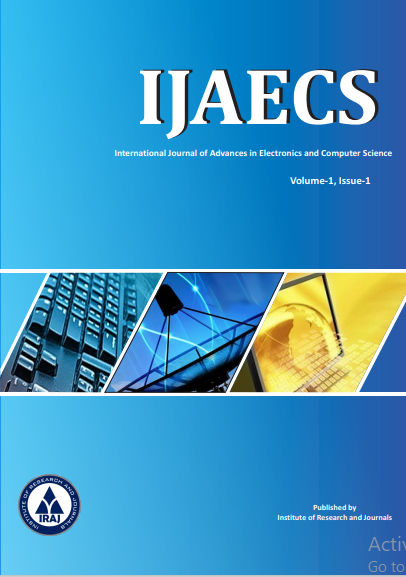Publish In |
International Journal of Advances in Electronics and Computer Science-IJAECS |
 Journal Home Volume Issue |
||||||||
Issue |
Volume-9,Issue-11 ( Nov, 2022 ) | |||||||||
Paper Title |
Efficient Classification of EEG Data from Mind-Controlled Linguistic Activities | |||||||||
Author Name |
Shruti Sen, Mousumi Laha, Amit Konar | |||||||||
Affilition |
1BITS-Pilani (KK Birla Goa Campus) 2,3Electronics & Telecommunication Engineering Department, BCI Lab, Jadavpur University | |||||||||
Pages |
20-24 | |||||||||
Abstract |
Abstract - Classification of Electroencephalogram (EEG) data that records brain activities of subjects, have important applications such as machine-human communications, neuro rehabilitation, enabling communication for individuals with linguistic disabilities, and many more. In this study, the EEG signals were recorded from individuals who were subjected to certain linguistic-imagery stimuli (were asked to imagine selected Vowel-sounds from regional Bengali language) and these “thought signals” from the brain were classified into proper vowel-sound category using a novel classifier algorithm. The EEG signals are filtered to remove noise or artifacts and then subjected to feature extraction mechanism before feeding into the classifier. Primitive Machine Learning classification algorithms such as SVM, KNN etc do not perform well on non-stationary and noisy datasets having multiple features, as those generated from a Brain-Computer-Interface (BCI) system. A novel Vector-Centroid based light-weight classification algorithm is proposed and tested on IRIS-species data set, before being used to classify the EEG data. In order to correctly classify the non-linear and noisy EEG data (having non-uniform spatial distribution in vector space), a new approach based on computing weighted Centroid vectors and class selection based on closest angle neighbour, is used. Test results show that the classification accuracy of the algorithm is comparable with primitive ML classification, despite being computationally much simpler and lightweight. This work has wide range of applications such as enabling software-based thought-driven writing capability for multi-lingual individuals with speech disability and even allowing them to send simple thought commands to external robotic interfaces. KEYWORDS - BCI, EEG, Linguistic Disability, Bi-Linguality, Sound Classification | |||||||||
| View Paper | ||||||||||